Some people say that time flies, time is money, we waste time, we kill it; but what do we actually know about time ?

©
Time seems like a river, it flows inexhaustibly for a moment and can't be stopped. There is one painful thing that is clear to us is that time has a direction, It goes on terrifyingly regularly, and there is no way to turn it back.
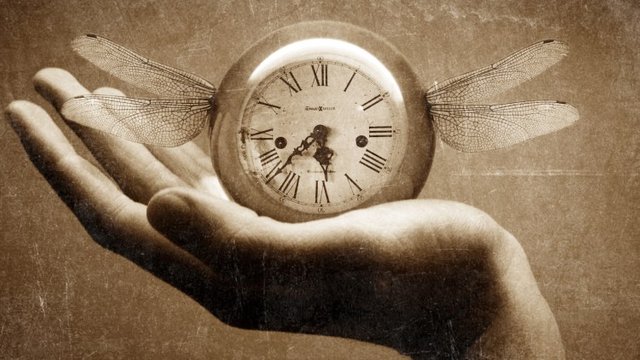
©
From a physical point of view, the direction of time is a mystery, and the solution to these arguments isn't only the task of physicists but also philosophers.
Time seems to be flowing in one direction only ... in the direction of future. In fact, this is a completely false belief. The discoveries of the last century showed that everything we know about time is an illusion, contrary to what we thought, Of the universe, ... our future could be present now, .... Einstein has shown that time can accelerate, slow, stop, or even return, but how? It's very familiar to us how can we be so wrong about it? But if time isn't what it is, what is time? From where it came ? Will it end?
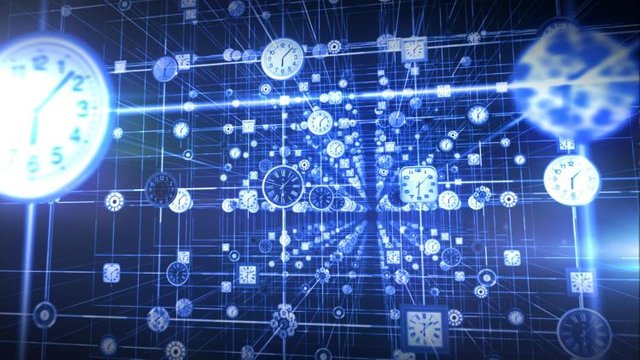
©
Most people look at time superficially, they think time is something constant, the clock ticks at the same speed at the same pace in every delay, even if everything stops moving, from cars to planets or even light, time is constant. This is what the spiritual father of modern science (Isaac Newton) began and this is certainly a false belief.
Newton's time was a constant and constant change at the same rate, time only advancing and not stopping or doing anything about it, every moment comes only once, ... Despite Newton's logic, Einstein proved to be incorrect.
Einstein discovered that time is advancing at different speeds, and as it seems from his strange discovery that time may not be as similar to mine as you are, we can say that Einstein's discovery crushed Newton's concept of reality .... Einstein reached this conclusion when he discovered a frightening relationship between time and space.
In discovering this relationship, he realize that we can't think of time and place as separate units, but rather think of them as a single, indivisible unit. This was the beginning of the notion of space-time.
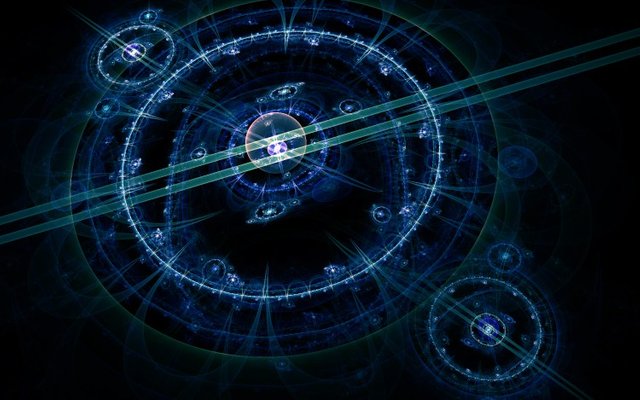
©
In our daily lives we feel in time as continuous flow, but it is also useful to think of it as sequential shots of scenes or moments and everything that happens can be imagined as a moment-by-moment follow-up, though we can visualize all the moments or scenes sequentially, every moment on earth the moment of Earth's rotation around the sun and every moment passing on every atom in the universe as a whole we will be able to see everything, not only in the present but in the past or even in the future, every location in space and every moment of time from the birth of the universe 14 billion years ago The stars in the Milky Way will form the earth from 4.5 billion until the emergence of the dinosaurs until we reach, at this moment you read this word.
In his view of time and place in this way, Einstein changed our idea of the past, the present and the future. To illustrate this, we have to think about the concept of "now," which at first appears intuitive and simple. ... For me, after events that include "now" On the wall clock, a car passes "now" on the street in front of my house, and other things far away from me, such as: a dove flapping its wings "now" in Venice, the meteor collides "now" in the moon and a blast at the ends of the universe Events and others are what I imagine happening at the same moment, and in different parts of the universe summarizing what we call "now" and present.
We can imagine these events on one slice of time and call them a "chip", the logic says that we all agree on what is happening now or what is now, moment by moment. In other words, we all collect on one slide, Einstein proved that when we take the motion into account, everything we consider natural is completely fading.
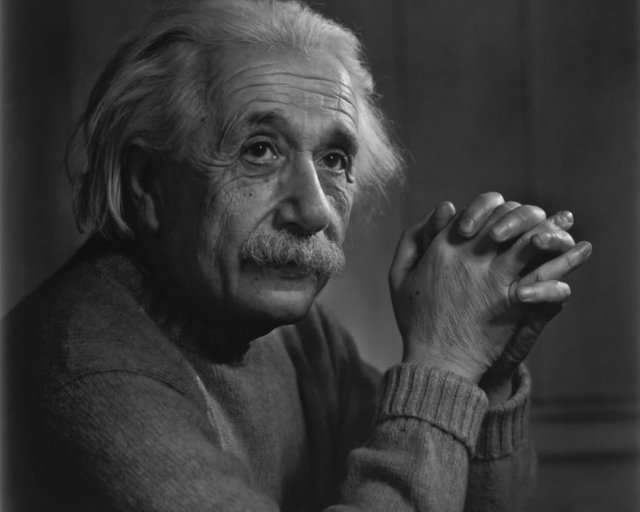
©
To illustrate this perception of space and time, Einstein realized that it is possible to slice the loaf of bread into slices in different ways. There are also different ways of cutting time in different ways and angles, because the movement affects the flow of time. Everyone who moves will have a different view of what is happening now, So they will cut the time into different slices, their slices will be at different angles, the moving body will change the angle of cutting will be the instant slices are cut at different angles, will not be parallel to my current.
In order to simplify this strange process, let us imagine an alien here in a galaxy about ten billion light years away, and there is a man on our planet sitting on the couch reading the newspaper. If the two are sitting in their place, their hours are ticking at the same pace. They will be on the same instant slide. During the loaf, but see what happens if the alien rode its bicycle away from our land as the movement reduces the speed of time, the two hours are no longer ticking at the same pace, and as the two hours are no longer agreed, their two instant pieces are no longer the same, the immediate slide of the alien is cut off The alien is moving at a little speed. The angle of the pieces is also small, but for such a large distance, the time difference will be very large in the end, so the alien in its own instant segment, which it sees as getting the planet, Will find that it no longer contains the man who sits on his ark not even 40 years ago when the man was a child, and even surprisingly, the slice of the space creature has fallen 200 years since we consider today as far away as. Beethoven finishes his fifth symphony.
Even at relatively slow speeds we can get vast paradoxes about what we call "now" when we are scattered in vast dimensions in space, if this is not very strange to you, the direction of the movement also has an effect if the space creature direction, its current segment will be towards the future contains Events that have yet to occur on our planet for 200 years to come, the grandchild of the grandson of the grandson of the man may be traveling from Paris to New York via the immediate carrier.
The moment you realize that your present may be what I considered the past, or that your present may be my future and that your present and realistic presenters then we will know that the past is a fact and that the future is true and may be your present means that the past, present and future are all one fact, all exist that ratified the laws of physics. The past and the past exist as the present moment, the past has not faded and the future is present, the past, the present and the future are in the same way.
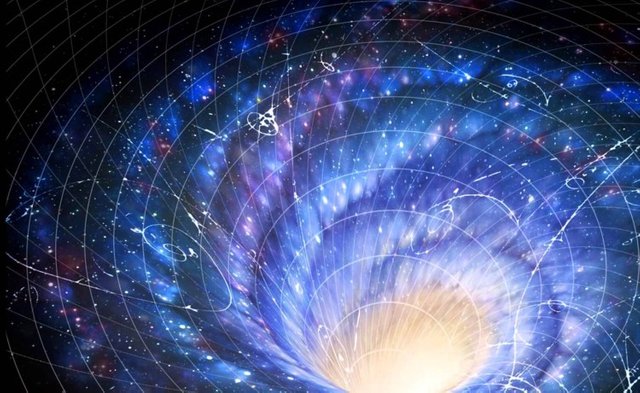
©
As we can imagine the space there, we must also realize that time exists in the same way. Everything happened and everything will happen. Starting from the earth about 4.5 billion years ago, Leonardo da Vinci puts his last touches on the Mona Lisa to your first day at school through the events. It has not yet happened like the first person on Mars.
With this bold image, Einstein broke our principles, which we understood. Time has differentiated between the past, the present and the future, as he once said (an illusion) even though we think of its obviousness.
Question Now Can we even imagine a theory that explains everything we can know about the universe?
Physicists seek to find a formula that explains all the phenomena that occur in the universe in one theory. This theory must link the four basic forces known to explain everything:
- gravity
- Nuclear weapons
- Electromagnetism
But the truth is, we will not know. There is a mathematical result, called Manchak's theorem, which states that it is impossible to know everything about the nature of the universe. The core of this theory is that you can recognize the things that have passed, and among these, you can only realize those that don't require the transfer of information faster than the speed of light so that you can perceive it, the reason for this, as Einstein observed, is that light sets a maximum cosmic limit for speed. "This means that you can only perceive things within the so-called past light cone," says Butterfield. "It is a whole space-time group that can send you a signal that travels at a speed not greater than the speed of light. And if you take into account the limits imposed by this limitation, even if you have full knowledge of your past light cone, you will not know anything about the universal shape of the universe, Manchak is a theory of grief and pessimism. "

Very good article. I was always attracted by the possibilities arousing from time paradoxes in literature, yet I am trully fascinated when I look at time through science's prism. I really enjoyed reading your post.
Downvoting a post can decrease pending rewards and make it less visible. Common reasons:
Submit
The future around the world
Downvoting a post can decrease pending rewards and make it less visible. Common reasons:
Submit
And to think that all those years ago, Einstein's teachers at school spoke of him as a 'lost cause'.
This is a really well thought out and well composed piece of writing, and it really makes the reader stop and consider again what they know about time. Cause as much as the facts you've provided here stand true, if everyone maintained a conscious understanding of time and everything we know about it, as opposed to the simple digitized and analogous representations of it we have been trained with and have gotten used to, the world as we know it would likely either fall apart altogether or come to a complete standstill.
People live out their entire days looking at that set of hands on a face with numbers on it, or on those digital numerical values strapped to their wrists or attached to their vehicle dashboards. If everybody stopped to marvel and ponder the mysteries of time, space, and the universe they hold together, it'd be a realtime disaster.
So now your post potentially puts drivers at risk of absent-minded collision if they read it while on the road. Congratulations :D
Just kidding lol :P
Awesome post, man...really made me stop and think.
Keep coming up with cool stuff, here's your upvote and your follow :)
Cheers m8!
Downvoting a post can decrease pending rewards and make it less visible. Common reasons:
Submit
Great reply, thank you for reading.
Downvoting a post can decrease pending rewards and make it less visible. Common reasons:
Submit
You're welcome, and likewise :)
Downvoting a post can decrease pending rewards and make it less visible. Common reasons:
Submit
very very nice topic. Starting line is excellent. Upvote you. Following you.
Downvoting a post can decrease pending rewards and make it less visible. Common reasons:
Submit
Thank you.
Downvoting a post can decrease pending rewards and make it less visible. Common reasons:
Submit